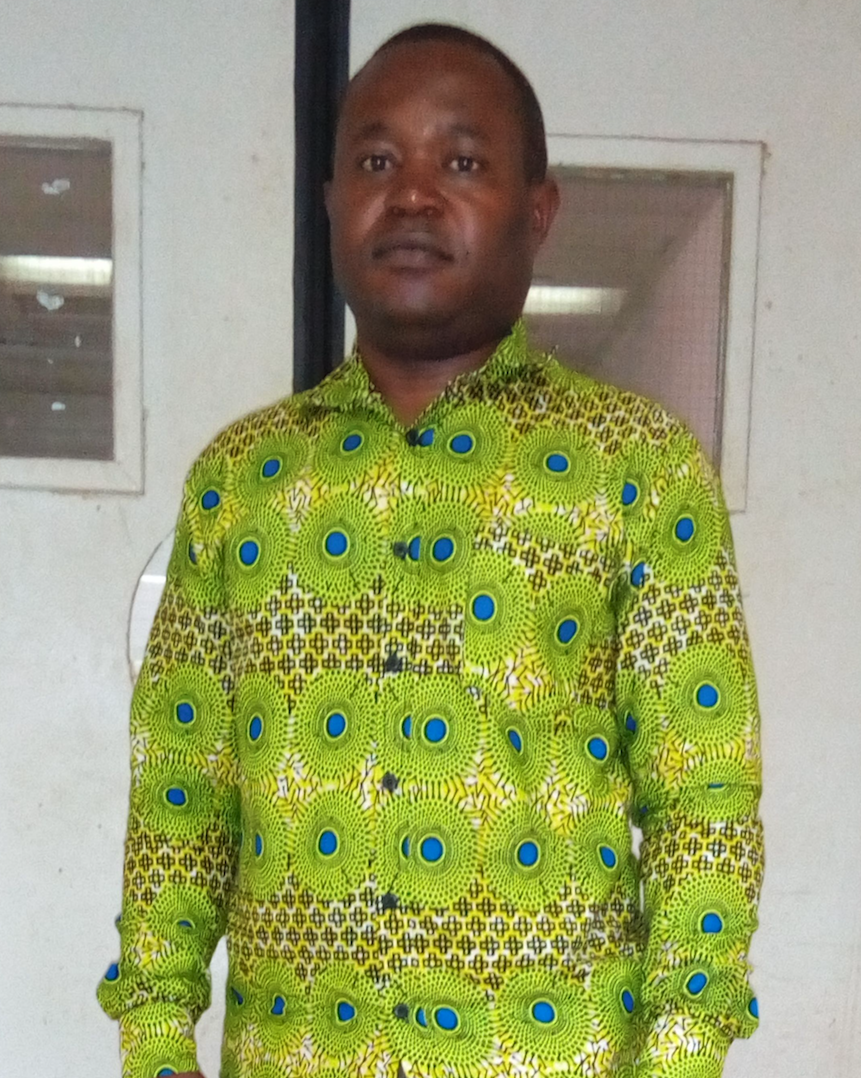 Tchakouté Kouamo Hervé, an inorganic chemist at the University of Yaoundé I in Yaoundé, Cameroon, is the 2018 winner of the Atta-ur-Rahman Award in chemistry. He was honoured for advances in creating an environmentally friendly cement that could be used in Cameroon and elsewhere for future construction projects and sustainable development.
Tchakouté Kouamo Hervé, an inorganic chemist at the University of Yaoundé I in Yaoundé, Cameroon, is the 2018 winner of the Atta-ur-Rahman Award in chemistry. He was honoured for advances in creating an environmentally friendly cement that could be used in Cameroon and elsewhere for future construction projects and sustainable development.
The award is granted annually by 1985 TWAS Fellow Atta-ur-Rahman, a distinguished Pakistani chemist and a past president of the Pakistan Academy of Sciences. It acknowledges the work of researchers from scientifically lagging countries who have obtained high-impact results in various fields of chemistry.
“I am really grateful and honoured to receive this prestigious TWAS-Atta-ur-Rahman Award,” said Tchakouté Kouamo. “It is very important for a researcher to know that people are appreciating his work. This award will enable me to be more productive, and it will also be a source of motivation for me in my future career.”
He is not just a lecturer and researcher at University of Yaoundé I, but a product of the university. He received his bachelor’s, master’s and PhD in inorganic chemistry there, and he has spent his entire career developing what’s called “geopolymer cement”.
Typical commercial cement, known as Portland cement, requires a lot of energy to make, and thus results in heavy release of greenhouse gasses into the atmosphere. Geopolymer cement has already existed for some time, but Tchakouté Kouamo’s work is looking to make it even more green by using waste materials such as discarded glass, rice husk ash and sugarcane bagasse (the fibrous matter that remains after juice is extracted) as parts of the cement mixture.
![Hervé Tchakouté Kouamo (furthest back) in his laboratory speaking with students. [Photo provided]](/sites/default/files/inline-images/photo_speaking_with_students.jpg) “The synthesis of geopolymer is very simple and we have in Cameroon some waste materials which are not used,” said Tchakouté Kouamo. “My main objective is to valorize these waste materials in the production of geopolymer cements.”
“The synthesis of geopolymer is very simple and we have in Cameroon some waste materials which are not used,” said Tchakouté Kouamo. “My main objective is to valorize these waste materials in the production of geopolymer cements.”
Portland cement hardens at 1500 degrees Celsius, while geopolymer cement only needs about 700 degrees of heat. This means switching from Portland cement to geopolymer cement reduces emissions as much as 70 to 80%.
It’s also a better, stronger material in general. “It bears more weight because it has a more compact and denser matrix,” Tchakouté Kouamo said. “And yes, geopolymer cement has a long-term durability.”
He fuses the recycled materials with volcanic ash to make the geopolymer cement. It’s not yet available on the market, but introducing it is part of the plan. He’s looking for investors who will help fund its production.
His research was made possible in part by a TWAS Research Grant in December 2016. He used the grant to purchase a compressive strength machine, which applies force to the hardened cement to gauge the force until it breaks, as well as an oven to dry ingredient samples. Now he and his research group, including six master’s students and three Ph.D. students, are able to produce as many bricks of geopolymer cement as they need to conduct their research.
About the Atta-ur-Rahman Award for Scientific Research
The Atta-ur-Rahman Award was established in 2012 by TWAS Fellow Atta-ur-Rahman of Pakistan, a leading scientist and scholar in the field of organic chemistry, renowned for his research in areas related to natural product chemistry. He has also been an influential advocate for science education. The award includes a prize of USD5,000 and is given annually to a talented chemist, under the age of 40, who lives and works in any of the 66 scientifically lagging countries designated by TWAS. The award is now sponsored by the Dawood Foundation.
About TWAS
The World Academy of Sciences for the advancement of science in developing countries – TWAS – supports sustainable prosperity through research, education, policy and diplomacy. TWAS was founded in 1983 by a distinguished group of scientists from the developing world, under the leadership of Abdus Salam, the Pakistani physicist and Nobel Prize winner. Today, TWAS has more than 1,200 elected Fellows from nearly 100 countries; 14 of them are Nobel laureates. The Academy is based in Trieste, Italy, on the campus of the Abdus Salam International Centre for Theoretical Physics (ICTP). Through more than three decades, its mission has focused on supporting and promoting excellence in scientific research in the developing world and applying scientific and engineering research to address global challenges. TWAS receives core funding from the government of Italy and essential programmatic funding from the Swedish International Development Cooperation Agency (Sida). It is a programme unit of the United Nations Educational, Scientific and Cultural Organization (UNESCO).
Sean Treacy

